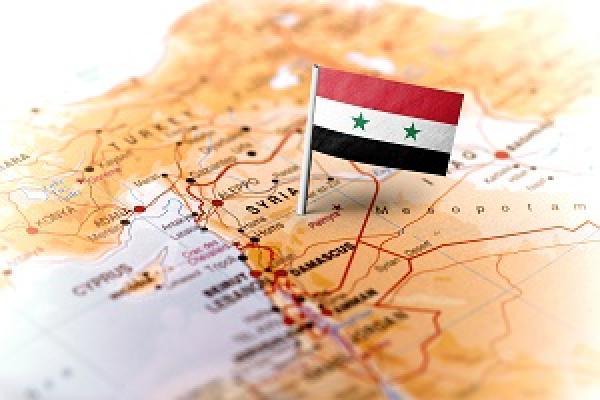
Steamship Mutual
Published: November 22, 2018

Club correspondents Freehill Hogan and Mahar of New York have issued this client alert. Our thanks to them for their permission to reproduce it.
Introduction
On November 20, 2018 the U.S. Department of the Treasury’s Office of Foreign Asset Control (“OFAC”) issued an Advisory to the Maritime Petroleum Shipping Community setting forth a strong warning against transporting petroleum to the Syrian Government. The Advisory states in no uncertain terms that any parties involved with petroleum shipments to the Government of Syria, which is broadly defined, are at risk of being targeted by the United States for sanctions. While the Advisory places emphasis on petroleum products, involvement in other imports or exports to or from the Syrian Govenment may also result in the imposition of sanctions. To read the Advisory in full, click here.
Background
Executive Order 13582 specifically prohibits the importation of Syrian petroleum or petroleum products into the U.S. and prohibits a U.S. person from engaging in any transaction in any way related to petroleum or petroleum products of Syrian origin. The E.O. does not contain the same specific prohibition for non-U.S. persons. Instead, Section 1(b) provides for the blocking of the property in the U.S. of “any person” (not just a U.S. person) who is determined to have
materially assisted, sponsored, or provided financial, material or technological support for, or goods or services in support of, any person whose property and interests in property are blocked pursuant to the E.O., or any person owned or controlled by, or found to have acted for or on behalf of, directly or indirectly, any such person. The E.O., in Section 1(a), blocks all the property in the United States of the Government of Syria. Therefore, any material support for the Government of Syria is a sanctionable activity. Any party whose property is blocked under E.O. 13582 would be designated to the U.S. Specially Designated Nationals List (“SDN List”). The Advisory does not identify the specific U.S. sanctions authority under which OFAC intends to impose sanctions for dealings in petroleum shipments to Syria. It seems that the U.S. will rely upon Section 1(b) of E.O. 13582 as the basis for sanctions against any person who facilitates
exports or imports from/to the Government of Syria, including transporting petroleum to Syria’s state-owned and state-operated ports.
In our Client Alert of August 26, 2015 regarding Executive Order 13582 we pointed out that the term “materially” is not defined in the E.O. At that time we stated that there would presumably have to be a factual determination by OFAC on a case-by-case basis to determine whether a transaction with an entity whose property was blocked under the E.O. was material. However, with its Advisory of November 20, 2018, OFAC states clearly that providing petroleum
to the Syrian government and its owned and operated ports, will be a sanctionable activity. The second paragraph of the advisory reads:
The United States is committed to disrupting illicit financial and other support to the Syrian Government, to include transporting petroleum to its state-owned and -operated ports, regardless of the location or nationality of those facilitating such support. Those who facilitate the financial transfers, logistics, or insurance associated with these or other petroleum shipments are at risk of being targeted by the United States for sanctions." (emphasis added)
This appears to be a new toughening of the enforcement of the U.S. sanctions against Syria. The definition of the “Government of Syria” appears in footnote 2 on page 2 of the Advisory and is very broad, as follows:
(a) The state and the Government of the Syrian Arab Republic, as well as any political subdivision, agency, or instrumentality thereof, including the Central Bank of Syria;
(b) Any entity owned or controlled, directly or indirectly, by the foregoing, including any corporation, partnership, association, or other entity in which the government of Syria owns a 50% or greater interest or a controlling interest, and any entity which is otherwise controlled by that government;
(c) Any person that is, or has been, acting or purporting to act, directly or indirectly, for or on behalf of any of the foregoing; and
(d) Any other person determined by OFAC to be included within (a) through (c).
This broad definition will necessitate a new level of due diligence for any shipowner trading to Syria. Previously, six Syrian ports or port authorities were named to the SDN List, but that number may have increased. For example, the port of Banias, which regularly receives petroleum shipments, is now on the SDN List. In any trade with Syria, the U.S. SDN List should be checked carefully to confirm that no parties to the transaction are on the List. Further research should also be carried out to attempt to determine whether an entity involved in the transaction is owned or controlled by the Syrian Government or has acted on behalf of Syrian Government or any of its owned entities.
While the Advisory places emphasis on the transport of petroleum to Syria, the threat of the imposition of sanctions is not restricted to petroleum transactions. In the second paragraph on page 2 the Advisory states:
The US government will aggressively target for designation any person who provides support to the regime, for example, by facilitating exports to or imports from the Government of Syria, including government-owned entities, unless such exportation or importation is otherwise exempt or authorized.
While the Advisory makes it clear that shipments of petroleum will be considered material support for the Syrian Government, the above statement indicates that engaging in the import or export of other commodities may also be considered material support for the Government of Syria. As a result, all shipowners should exercise caution in any trade with Syria.
Summary
OPEC has issued a clear warning that any entity involved in petroleum-related transactions with the Government of Syria, including financial transfers, logistics, transportation or insurance, is at risk of being targeted for sanctions by the United States. In addition, transactions with the Government of Syria, which is broadly defined, in other imports and exports may also be judged to constitute material support and be considered a sanctionable activity.
Disclaimer: This Client Alert provides only a general summary of the OFAC November 20, 2018 Advisory to the Maritime Petroleum Shipping Community and is not intended to constitute comprehensive legal advice. Specific legal advice should be taken with respect to each individual inquiry regarding the Advisory. For additional clarification, please feel free to contact Bill Juska, Gina Venezia or Bill Pallas.


